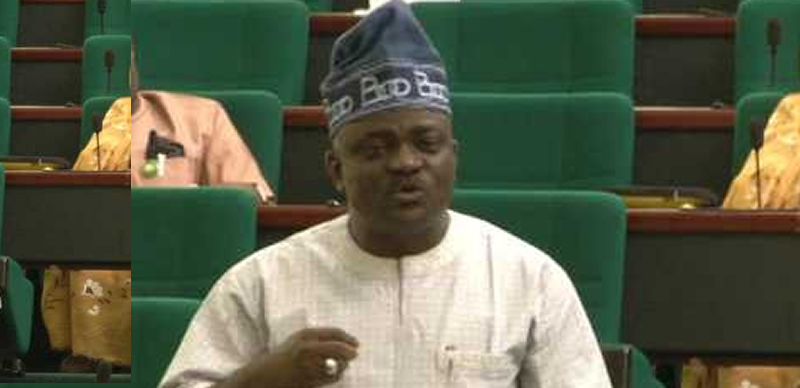Paragraph 1: The Genesis of Discontent
Oluwole Oke, a seasoned lawmaker representing Oriade/Obokun Federal Constituency, recently severed ties with the Peoples Democratic Party (PDP) after nearly two decades of membership. His decision, though long speculated, stemmed from a confluence of factors, primarily the desire to align with a Yoruba president and the perceived neglect of his constituency by Osun State Governor Ademola Adeleke. Oke, who had been instrumental in the PDP’s success in his traditionally progressive constituency, felt sidelined by the Adeleke administration, citing exclusion from key decision-making processes and the governor’s failure to address critical infrastructure deficits in his area. This perceived marginalization, coupled with the allure of supporting a president from his own ethnic background, spurred Oke’s departure from the party that had been his political home for many years.
Paragraph 2: The Infrastructure Impasse
A key driver of Oke’s disillusionment with the PDP was the dilapidated state of infrastructure in his constituency. He lamented the deplorable condition of roads connecting various towns and villages within Oriade/Obokun, highlighting the neglect of these vital arteries despite the state receiving its share of federal allocations. He argued that these roads, which he had previously used as a campaign tool against the All Progressives Congress (APC), had not seen significant rehabilitation since the era of former Governor Bisi Akande. Oke emphasized the importance of these roads for the economic well-being of his constituents and questioned the rationale behind the state government’s inaction despite his repeated appeals. This failure to address basic infrastructure needs, he asserted, was a betrayal of the trust placed in the PDP by the people of his constituency.
Paragraph 3: Political Pragmatism and National Alignment
Oke’s decision to leave the PDP also reflects a pragmatic political calculation. He recognized the significance of aligning with the ruling party at the national level, particularly given President Tinubu’s Yoruba heritage and the potential benefits this alignment could bring to his constituency. The establishment of a Federal University in nearby Iragbiji, a project Oke believes will offer significant development opportunities for his people, further solidified his resolve to join forces with the ruling party. He contrasted this with the challenges he faced in securing federal projects for his constituency while in the opposition, citing the stalled Federal College of Agriculture project in Ijebu-Jesa as a prime example. Oke’s move, therefore, can be interpreted as a strategic repositioning to maximize his ability to deliver development to his constituency.
Paragraph 4: Internal Party Dynamics and Allegations of Neglect
Beyond the infrastructural concerns, Oke pointed to internal party dynamics and allegations of deliberate marginalization as contributing factors to his exit. He claimed to have been excluded from Governor Adeleke’s transition committee and accused party members of spreading false rumors about him, including allegations of financial impropriety. Oke also cited the lack of appointments for his constituents to key positions within the state government, particularly the absence of an Esa-Oke indigene on the OSCOTECH Governing Council, a traditional appointment that had always been honored in the past. These perceived slights, Oke argued, demonstrated a lack of respect for him and his constituency, ultimately pushing him towards the exit door.
Paragraph 5: Rebutting Accusations and Defending his Legacy
Facing accusations of betrayal and opportunism, Oke vehemently defended his decision, emphasizing his long-standing contributions to the PDP. He highlighted his role as a founding member of the party and his instrumental role in securing victories for the PDP in a constituency traditionally aligned with the APC. He dismissed claims that he had "used" the party, arguing that he had personally invested heavily in the party’s success in his area. Oke also challenged critics who questioned his legislative achievements, pointing to the establishment of the Nigeria Air Force Safety Institute in Ipetu-Ijesa as a testament to his commitment to bringing development to his constituency. This project, he explained, would not only provide training and employment opportunities but also stimulate economic growth in the region.
Paragraph 6: Confidence in Constituent Support and Future Prospects
Despite facing criticism from some quarters, Oke expressed unwavering confidence in the support of his constituents, predicting a landslide victory for himself and his new political alignment in future elections. He dismissed the opposition of some PDP members in Ijesa North, arguing that their influence was limited and would not significantly impact his electoral prospects. Oke maintained that his focus remained on serving the people of his constituency and ensuring their access to development opportunities, regardless of political affiliations. He firmly believed that his constituents would ultimately judge him based on his performance and his ability to deliver tangible benefits to their communities. His decision to leave the PDP, therefore, represents a gamble on the continued support of his constituents and his belief that aligning with the ruling party will best serve their interests.














